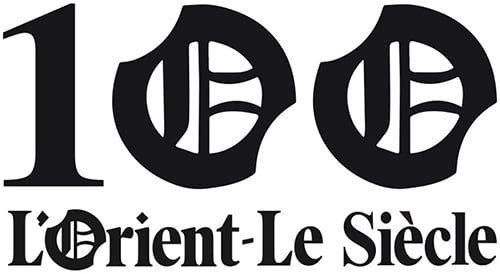Anke Domaske in her Qmilk laboratory, with a bolt of cloth made from Qmilk fibers. Photo Qmilk
Shakespeare wrote of the "milk of human kindness." And it was that human kindness - as well as dogged curiosity - that led a young German microbiologist and fashion designer to help an ailing relative by turning milk into a silk-like cloth he could wear.
What's more, Anke Domaske's discovery may have created a giant eco-opportunity for both farmers and fiber-makers around planet.
In 2009, when she was 26, her stepfather developed leukemia. "He couldn't find anything to wear because he has such a low immune system, and his skin reacted to everything," Domaske said from her factory in Hanover, Germany. Most cloth contains chemicals used in growing and manufacturing: cotton production, for instance, uses 35 percent of the world's insecticides and pesticides, according to WWF.
So Domaske and a small group of friends, who would later join her company Qmilk, went to a nearby grocery store and bought USD 200 worth of milk and basic cooking tools, including a big jam thermometer.
And they started to experiment, using a 1930s technique for making milk casein fiber as a starting point.
"In the end we tested over 3,000 recipes," she said, explaining that it took nine months to create a cloth that would not dissolve in water.
The critics were many
As Domaske recalled, the critics were many. "They said 'use some chemicals then you are going to get it quicker and have no problems.' And I was so stubborn, I said no, it has to work with just natural resources."
Her process is being patented, but the outline is simple: take milk, let it go sour, dry it out into protein powder like the kind athletes use, mix it with water and a few other natural ingredients, extrude that into a fluffy, cotton-ball like substance, and then spin that into threads. Domaske only uses waste milk, and she said it takes merely two liters of water to create a kilogram of cloth, which sells for around 27 dollars.
Because of health and safety standards, German farmers throw out around 2 million tonnes of milk every year - enough to fill 770 Olympic-size swimming pools.
QMilk uses a tiny portion of that, 1,000 tonnes of waste milk each year, and pays about 4 cents a litre. The company works closely with around 20 farmers in Germany now, though Domaske has plans to expand significantly.
One such farmer is Bernd Pils, who has over 120 dairy cattle on his farm around 100 miles from Hanover. He explained that he can't sell milk when his cows are feeding their calves, or are ill and taking medicine.
But now he can sell it to Qmilk. "I find this exciting," he said, "because we always have a part of our milk that cannot be used for human consumption. So it's great for sustainable development."
Domaske did not provide detailed financial results but said there had been more than a thousand expressions of interest in the Qmilk fiber, after the company was officially launched with 10 employees and a USD 6 million initial investment in 2011.
The production line now runs in two shifts, focused on an 11 meter-high extrusion machine that pulls out long threads like a spaghetti machine. Domaske likes to pop a thread into her mouth to show visitors how safe the material is.
The cloth is good at fighting off bacteria, silky-smooth to the touch, biodegradable, machine-washable, and keeps you both cool in summer and warm in winter.
A premium toilet paper
For several years now, she has been selling clothing of her own design, as well as bolts of cloth to other designers. In the long term, she wants to sell to automakers, furniture companies and hospitals.
But one new customer's product will never make it down the catwalk or into a luxury sedan. It's "Carezze di Latte," a premium toilet paper for sale in Italy since December, at around three dollars for four rolls.
It's made by the Italian paper company Lucart, which prides itself on being eco-friendly.
"In the fiber world there is like a New Deal looking for fiber coming from waste," said Stefano Staffieri, the company's marketing manager.
The firm's scientists wanted to improve the company's bestselling toilet paper when they came across an Italian clothing firm using Qmilk's cloth in its apparel.
Using a process the company is now patenting, Lucart added some of the milk-based fiber to the regular toilet roll.
"This paper is the softest you can find on the market," said Staffieri. "This is the only product of this kind, so it's unique in itself. The consumers are very enthusiastic about it."
Both Domaske and Staffieri pointed out that milk is not the only foodstuff which can be turned into cloth. Orange and banana fibers, for instance, are also being investigated in order to limit food wastage.
Nor is the possibility of using excess milk limited to Germany or Western countries. Domaske pointed out that India has problems with its cooling chain, so milk often goes sour. "There is a huge amount of wasted milk all around the world," she said. And if she has her way, millions might one day be wearing it.
All the article from our Impact Journalism Day special edition are here
In 2009, when...

commentaires (0)
Commenter